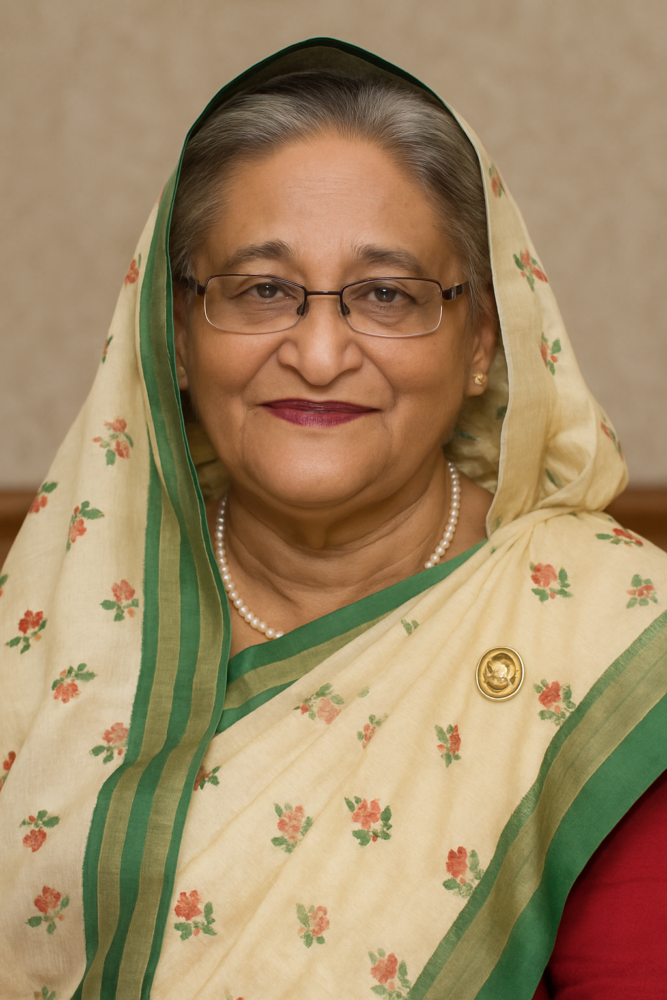Sheikh Hasina Indicted by ICT for Crimes Against Humanity
Bangladesh’s International Crimes Tribunal (ICT) on Thursday, July 10, formally indicted ousted Prime Minister Sheikh Hasina for crimes against humanity related to a deadly crackdown on student-led protests in 2024. The tribunal, headed by Justice Golam Mortuza Mozumder, accepted charges against Hasina and two of her key allies—former Home Minister Asaduzzaman Khan Kamal and former Inspector General of Police Chowdhury Abdullah Al-Mamun. The charges include five counts linked to the deaths and violent suppression of protestors during the widespread unrest that engulfed the country last year. Hasina and Khan are being tried in absentia, while Mamun was arrested and has reportedly pleaded guilty, offering to cooperate with the prosecution.
The protests, led primarily by students and youth activists, erupted in mid-2024 over alleged electoral manipulation and authoritarianism under Hasina’s nearly 16-year rule. According to a UN human rights report, approximately 1,400 people were killed between July 15 and August 15, 2024, during a brutal government-ordered crackdown. Evidence presented to the tribunal includes leaked audio recordings, government documents, and eyewitness accounts. One of the most damning pieces of evidence was a leaked audio tape in which Hasina allegedly stated, “There are 227 cases against me, so I now have a licence to kill 227 people.”
Hasina in Exile, Interim Government Takes Control
Following the escalating violence and growing international pressure, Hasina fled Bangladesh on August 5, 2024, and has since been in self-imposed exile in India. Her sudden departure marked the collapse of her administration and the end of the Awami League’s nearly two-decade-long hold on power. In the wake of the political vacuum, Nobel Peace Prize laureate Muhammad Yunus was appointed as Chief Advisor of a newly formed interim government. Yunus has since pledged to restore democratic norms, ensure accountability, and prosecute those responsible for the bloodshed.
The tribunal began its proceedings on June 5, with Mamun appearing in custody while Hasina and Khan remain outside the country. The court has scheduled August 3 for the opening prosecution statement and August 4 for the beginning of witness testimonies. Prosecutors argue that the defendants directly orchestrated and authorized the violence, including giving shoot-to-kill orders to police and security forces.
Contempt of Court Conviction Adds to Legal Woes
Adding to Hasina’s mounting legal troubles, the ICT sentenced her on July 2 to six months in jail for contempt of court. The charge stemmed from the same leaked audio recording, which was deemed a direct threat to the integrity of the judiciary and an attempt to intimidate those involved in war crimes trials. The court ruled that such statements by a former head of government could not go unpunished, as they undermined the judicial process during a critical moment in the country’s democratic transition.
Global and Domestic Implications
The charges against Hasina represent one of the most significant post-leadership legal actions in Bangladesh’s history. The tribunal’s proceedings have sparked intense public debate and international interest. Human rights organizations have urged transparency and due process, while the interim government continues to press India for Hasina’s extradition. As the trial unfolds, it may shape the future of Bangladesh’s accountability mechanisms, rule of law, and political landscape for years to come.








